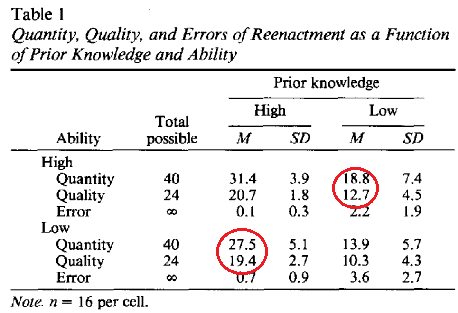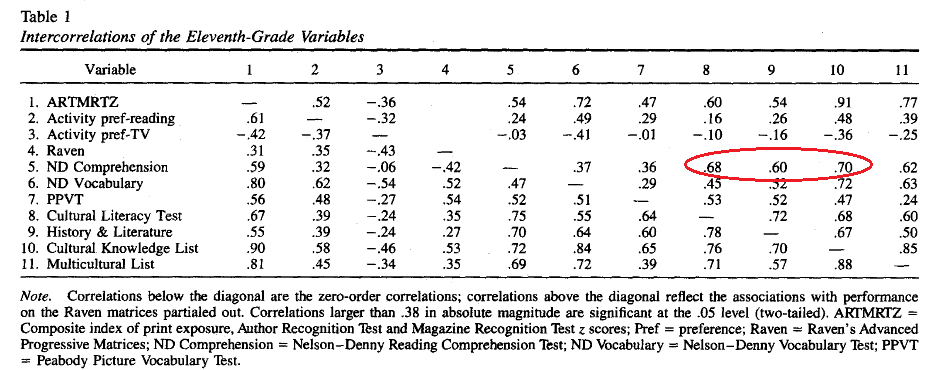They are spending a great deal of time on English Language Arts. According to the papers I cited, 62% of classroom time for first-graders, and 47% for third-graders.
The irony is that, by failing to include more time for science, history, geography, civics, etc., we are very likely hurting reading comprehension. Why? Because reading depends so heavily on prior knowledge.
Every passage that you read omits information. For example, consider this simple passage "Dan was so embarrassed. He went to the concert and forgot to turn off his phone." The author has omitted much information: the phone rang, the ringing was audible to others, the phone rang at a time when others were enjoying the music. All of this omitted information must be brought to the text by the reader. Otherwise the passage will be puzzling, or only partly understood. (I made a video explaining this phenomenon. You can see it here.)
Once kids are fluent decoders, much of the difference among readers is not due to whether you're a "good reader" or "bad reader" (meaning you have good or bad reading skills). Much of the difference among readers is due to how wide a range of knowledge they have. If you hand me a reading test and the text is on a subject I happen to know a bit about, I'll do better than if it happens to be on a subject I know nothing about.
Two predictions fall out of this hypothesis.
First, if take some "bad readers" and give them a text on a subject they know something about, they should suddenly read well, or at least, much better.
Several studies show that that is the case. In one that I've cited before, Recht & Leslie (1988) tested "good" and "poor" readers (as identified by a reading test) on their comprehension of a passage about baseball. Some kids knew a lot about baseball, some not so much.
Here's a second prediction. There should be a correlation between world knowledge and reading comprehension. The more stuff you know about the world, the more likely it is that you'll know at least a bit about whatever passage you happen to hit.
The Recht & Leslie paper is well known, but this finding, less so. It's from a paper by Anne Cunningham & Keith Stanovich that was actually addressing a different question.
The red circle shows the remarkably high correlation between reading comprehension and the measures of cultural knowledge.
This association may not seem so remarkable. Wouldn't one predict that smart kids are good readers, and smart kids also know a lot of stuff? So all we've done is measure intelligence in two indirect ways.
The correlations shown above are actually partial correlations. Researchers administered a standard non-verbal intelligence test (Raven's progressive matrices) and statistically controlled for the effect of intelligence. The correlations I've circled reflect that statistical control.
In sum, once kids can decode fluently, reading comprehension depends heavily on knowledge. By failing to provide a solid grounding in basic subjects we inadvertently hobble children's ability in reading comprehension.
As I have put it elsewhere, Teaching Content IS Teaching Reading.
Cunningham, A. E. & Stanovich, K. E. (1997). Early reading acquisition and its relation to reading experience and ability 10 years later. Developmental Psychology, 33, 934-945.
Recht, D. R. & Leslie, L. (1988). Effect of prior knowledge on good and poor readers' memory of text. Journal of Educational Psychology, 80, 16-20.


 RSS Feed
RSS Feed